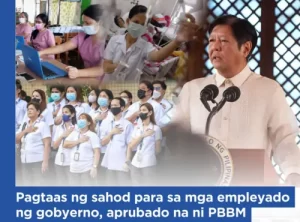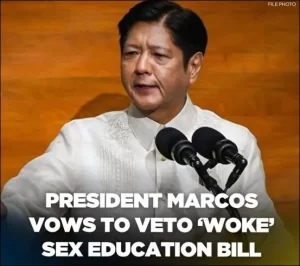
The Department of Budget and Management (DBM) has announced a much-anticipated boost for civilian government employees with the implementation of the second tranche of their salary increase, set to take effect on January 1, 2025. This adjustment is part of the four-year salary enhancement plan outlined under Executive Order (EO) No. 64, s. 2024, demonstrating the government’s ongoing commitment to improving the welfare of its workforce.
Table of Contents
Details of the Salary Adjustment
To formalize the implementation of the second tranche, DBM Secretary Amenah Pangandaman signed National Budget Circular No. 597, which specifies the rules, regulations, and funding provisions for the salary hike.
Under this initiative:
- The second tranche will commence on January 1, 2025, benefiting all eligible civilian government employees.
- The third tranche is scheduled for 2026.
- The final tranche will be rolled out in 2027 to complete the program.
The necessary funds for these salary adjustments will be sourced from the Miscellaneous Personnel Benefits Fund and other available appropriations under the 2025 national budget. This ensures that the program is fully funded and implemented as planned, avoiding potential delays or budgetary constraints.
A Step Toward Financial Relief
According to Secretary Pangandaman, the second tranche is designed to provide financial relief for government employees, many of whom have struggled with rising costs of living and the economic challenges brought about by inflation.
“We hope this second tranche will enable our government workers to better support their families, invest in their futures, and elevate their overall quality of life,” Pangandaman stated in an official release.
This increase, while celebrated by many, has sparked a conversation among employees about whether the adjustment is sufficient given the current economic landscape. The rising prices of essential goods and services have left many workers questioning whether the salary hike will be enough to truly address their financial needs.
President Marcos’ Commitment to Civil Servants
During his 2024 State of the Nation Address (SONA), President Ferdinand “Bongbong” Marcos Jr. reaffirmed his administration’s dedication to improving the welfare of government workers. In addition to the planned salary increases, Marcos announced the inclusion of a medical allowance for government employees, further underscoring the administration’s acknowledgment of the critical roles civil servants play in nation-building.
The president emphasized that the government’s workforce remains at the heart of its programs and initiatives, pledging to continuously seek ways to support them amid ongoing economic challenges.
What This Means for Government Employees
The implementation of the second tranche is expected to provide a positive financial impact on the lives of many government employees. It not only brings a sense of relief but also serves as recognition of their dedication and service to the public.
Here’s what government employees can expect:
- Increased Take-Home Pay: The adjustments will help alleviate financial burdens and provide more disposable income.
- Enhanced Morale: The increase reflects the government’s acknowledgment of its employees’ contributions.
- Long-Term Benefits: The structured salary adjustments over four years allow employees to better plan for their futures.
However, some concerns remain:
- Sufficiency of the Increase: As inflation continues to rise, the adequacy of the salary hike is being questioned by workers.
- Broader Support Needed: Many civil servants hope for additional benefits, such as housing allowances or expanded healthcare coverage, to supplement their income.
A Long Road Ahead
While the second tranche of the salary increase is a step forward, it is part of a larger, ongoing process to improve compensation for government employees. The full impact of these adjustments will become more evident in the coming years, as the government completes the remaining tranches in 2026 and 2027.
Secretary Pangandaman and President Marcos Jr. have both highlighted their commitment to ensuring that government employees are fairly compensated and equipped to face economic challenges. However, there remains a need for continued dialogue to ensure that future adjustments are aligned with the real needs of workers and the economic conditions of the country.
Conclusion
The second tranche of the salary increase for civilian government employees marks a significant step in recognizing their contributions and addressing their financial challenges. With the implementation set for January 2025, this adjustment is expected to provide much-needed relief and boost the morale of public servants across the nation.
While the government has demonstrated its commitment through this initiative, the adequacy of the salary hike remains a subject of discussion among employees, particularly in the context of rising costs of living. Moving forward, continued support and dialogue between the government and its workforce will be key to ensuring the success and sustainability of such programs.
Disclaimer
The information provided in this article is based on official announcements and public statements from the Department of Budget and Management (DBM). For specific details about salary adjustments and eligibility, employees are encouraged to refer to official DBM publications or consult their respective human resources departments.










